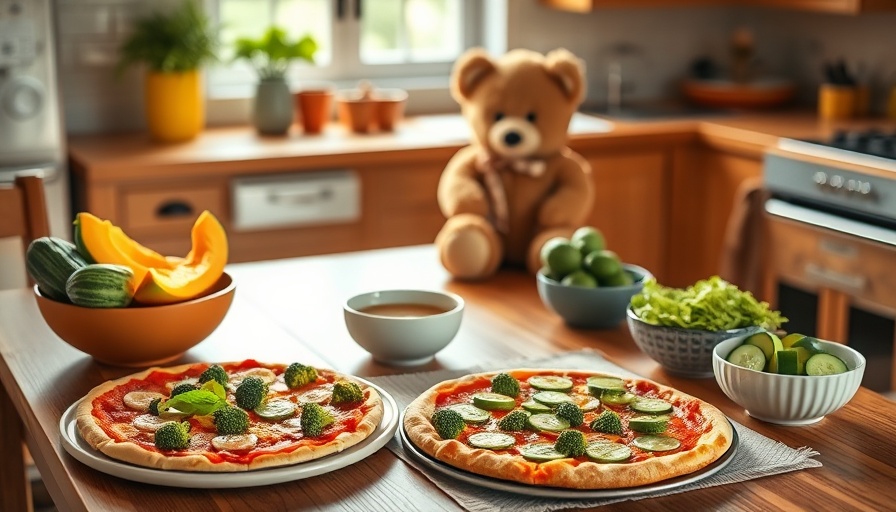
Finding Freedom from the 'Good Mom' Guilt in Mealtimes
As busy parents, the continuous pressure to provide ideal meals can easily manifest into the daunting 'Good Mom' guilt. This sentiment, often felt by many, stems from the belief that every meal needs to be a nourishing triumph. However, as clinical insights suggest, this may lead to heightened anxiety during mealtimes, complicating what should be a joyful experience. Embracing the reality of quick lunches and simple dinners can actually help families find a healthy balance and create a happier dinner table.
Understanding the Impact of Mealtime Pressure
Ellyn Satter's Division of Responsibility in Feeding illustrates that parents should decide what, when, and where their children eat, while kids determine whether and how much to eat. This separation is crucial in allowing children to develop their own relationship with food. When parents overly pressure their children to eat or finish their plates, it can inadvertently foster resistance and picky eating. Emotional stress and power struggles frequently accompany these situations, a pattern many families experience. Instead, gentle encouragement can allow kids the freedom to explore their food preferences without the fear of disapproval.
Healthy Family Meals: Reducing Expectations
Let go of the perfectionist ideals surrounding healthy family meals. Practicality can be your best friend! For instance, providing a mix of familiar favorites along with new cultural recipes can facilitate acceptance and curiosity at the dinner table. Integrating lunchbox ideas that feature a balance of nutritious and enjoyable foods is key. It is not about creating elaborate feasts but ensuring that mealtimes become venues for connection—for sharing stories or laughter that matter most.
Strategies to Create Tension-Free Mealtimes
Transforming your family meals requires practical, easy-to-implement strategies. Here are a few tips:
- Encourage children to help in the kitchen, making them active participants in meal prep.
- Offer a variety of foods without pressure; allow kids to explore what they like.
- Keep meals short and focused on enjoying each other’s company.
- Make conversations at the table light-hearted, discussing topics beyond food.
By employing such strategies, parents can alleviate the burden of mealtime stress, allowing for a more enjoyable experience that cultivates positive relationships around food.
A Path to Reduced Stress at the Table
Ultimately, understanding and addressing the guilt associated with being a 'Good Mom' can help change the narrative surrounding family mealtime. Recognize that it’s perfectly acceptable to have simple dinners, accept the occasional sandwich, and even prioritize self-care over cooking a grand meal. Embrace the ups and downs of mealtimes and focus on the connections made through shared experiences.
For more insights on redefining mealtimes in your family, consider joining supportive communities or exploring resources available through parenting blogs and networks. These platforms can offer practical advice and encouragement to help parents navigate the challenges of feeding their children while keeping the focus on love and connection.
 Add Row
Add Row  Add
Add 




Write A Comment